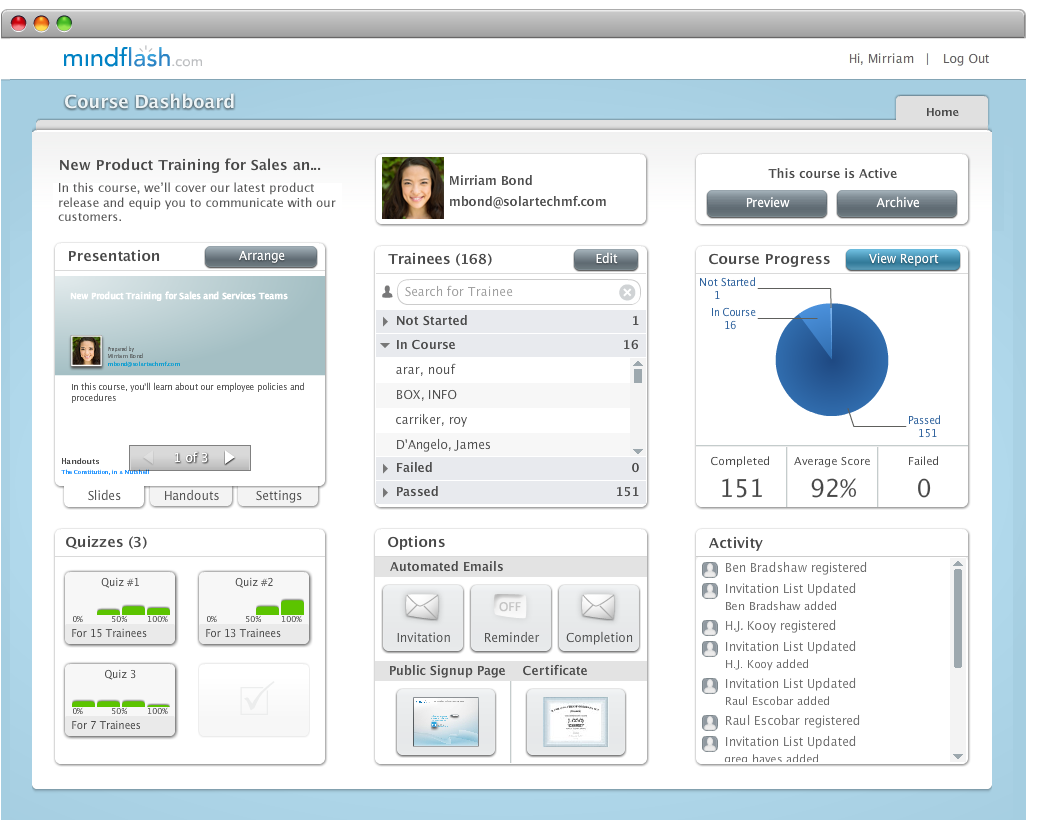Everyone's a Trainer
In the age of social networking, increased participation of wide segments of the workforce in the social conversation, and the ease with which any employee can share pretty much anything online about work, it has become more widely accepted that some traditionally centralized corporate roles are becoming more dispersed throughout the organization.
Once employees start blogging, tweeting, engaging on LinkedIn or Facebook, whether or not in an 'official' or sanctioned capacity, then in some ways, they all become marketers, communications, Public Relations, and even Recruiting. In the recruiting space specifically, in the last few years a number of software solutions have hit the market, all designed around this new 'every employee is a recruiter' mindset to more effectively tap into the reach and power of employee networks for recruitment marketing and referral generation.
If you are not familiar with these solutions, check out (among others), SelectMinds TalentVine, Jobvite, Work4Labs, MeshHire, or SocialBios. I know there are many more out there, if you care to, please share any additional solutions you like in the comments. But the larger point, beyond specific solutions or manifestations, is that the notion of 'we are all recruiters' seems less exotic and more mainstream all the time.
Switch gears to another traditionally centralized corporate function that could also seemingly benefit from the same kind of 'dispersion of responsibility' we are starting to see in marketing and recruiting, namely the corporate training department. Despite the influence, or potential influence, of the same kinds of factors (better tools, social connectivity, willingness to share information and knowledge), the idea of 'we are all trainers', has not yet really resonated in most organizations. 
For the most part, even while training, (delivery, timing, methods), has changed significantly over the years, the responsibility for the creation, administration, and communication of 'training' in its various forms still is often the responsibility of a central training and development staff. And certainly this can be explained on one level - sending out a tweet or forwarding a link to an open position to a Facebook friend is not nearly as complex as generating and sharing more robust training material. And the tools for developing really informative and relevant training content are definitely not as easily accessible and as user friendly as public social networks, nor the new breed of social recruiting technologies like the ones listed above.
Simply put, even in this socially connected, sharing inclined, more technically aware environment we operate in, the right tools for the simple and fast creation of organizational training content by people that are not training 'experts' have been few and far between. Mostly if you had an idea for some training content, or wanted to develop a new course or module, you contacted the training department, let them know what you were after, and left them (the experts), to build or procure what they thought you needed.
But as sure as social sharing and networking is changing recruiting, a new tool called MindFlash is hoping to have a similar, sort of revolutionary effect on corporate training. The basic premise of MindFlash is to provide a simple, cloud-based environment that will allow anyone in the organization the opportunity to sign up for the service, configure a course, and invite their first student in 15 minutes or less.
There are more advanced features like the ability to add quizes, embed video, and track who's taken a course, but the ability to quickly and easily tap into organizational subject matter experts to generate 'courses' at the new speed of business is the compelling feature here.
It seems reasonable to think that with the availability and ease of use of a tool like MindFlash, that early adopters will see training start to bleed out of centralized training departments and become the responsibility of all employees. And 'training' itself will also likely change, from more traditional and long blocks of content (hours, even days), to more targeted, quick hitting, and timely bits of content, shared and developed not necessarily by training 'experts' but by the true subject matter experts.
What do you think? Would making the ability to develop and offer training as a more flexible, rapid, and distributed function help your organization?
Note: MindFlash has a number of licensing options, from a 'Lite' free version, and scaling up to 'Enterprise' levels of up to 1,000 trainees for $999/month. All plans come with a 30-day free trial.

 Steve
Steve

